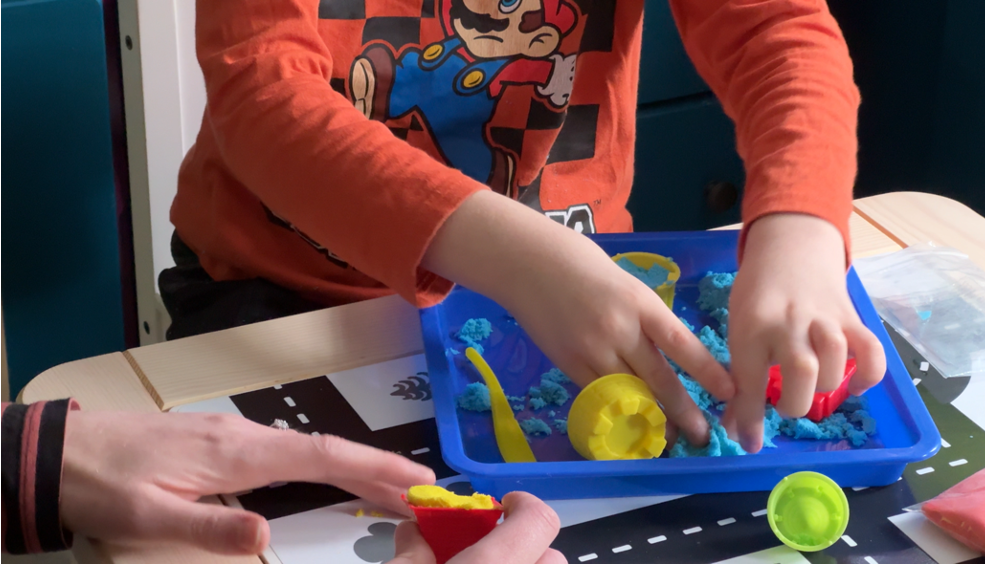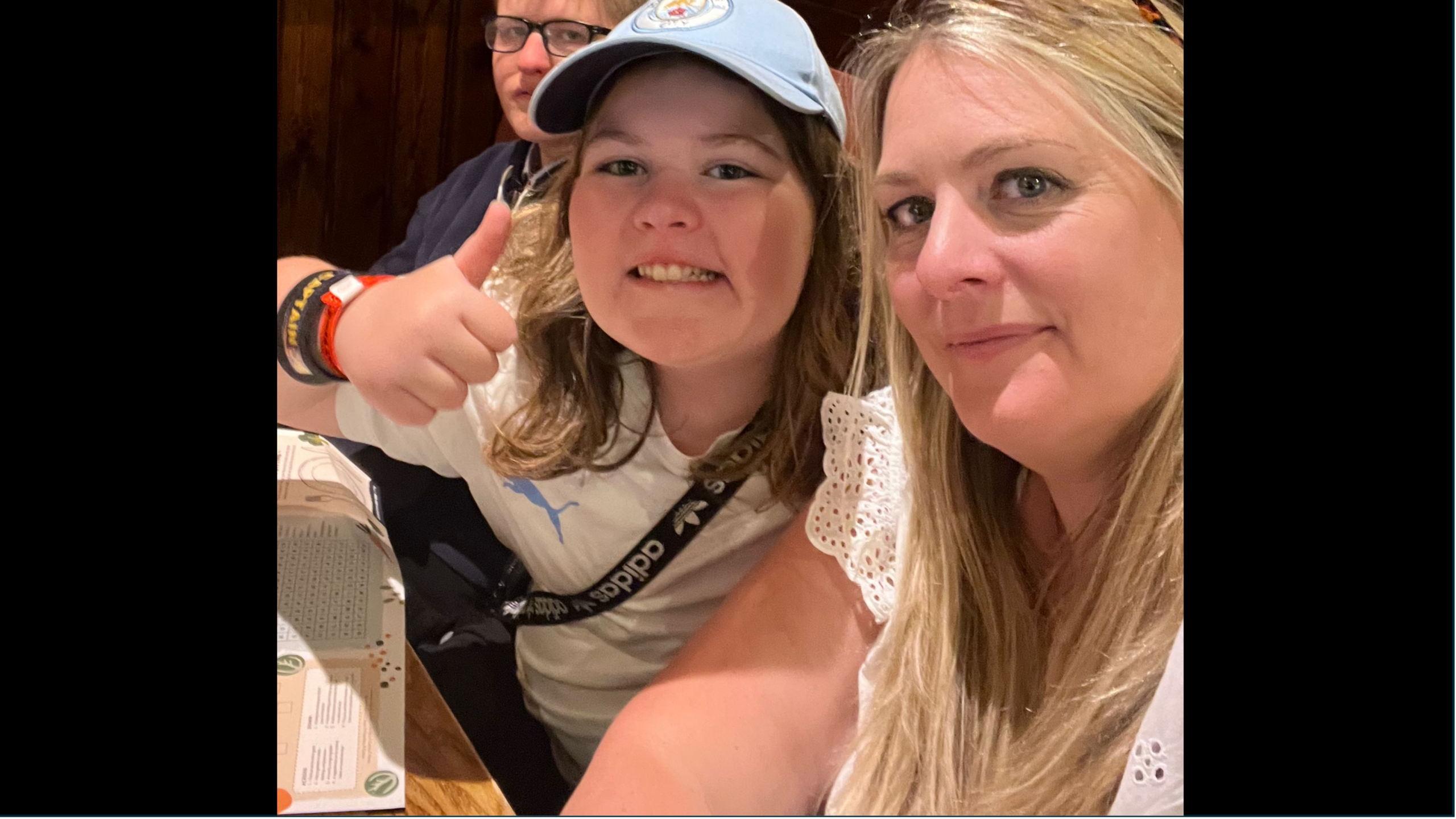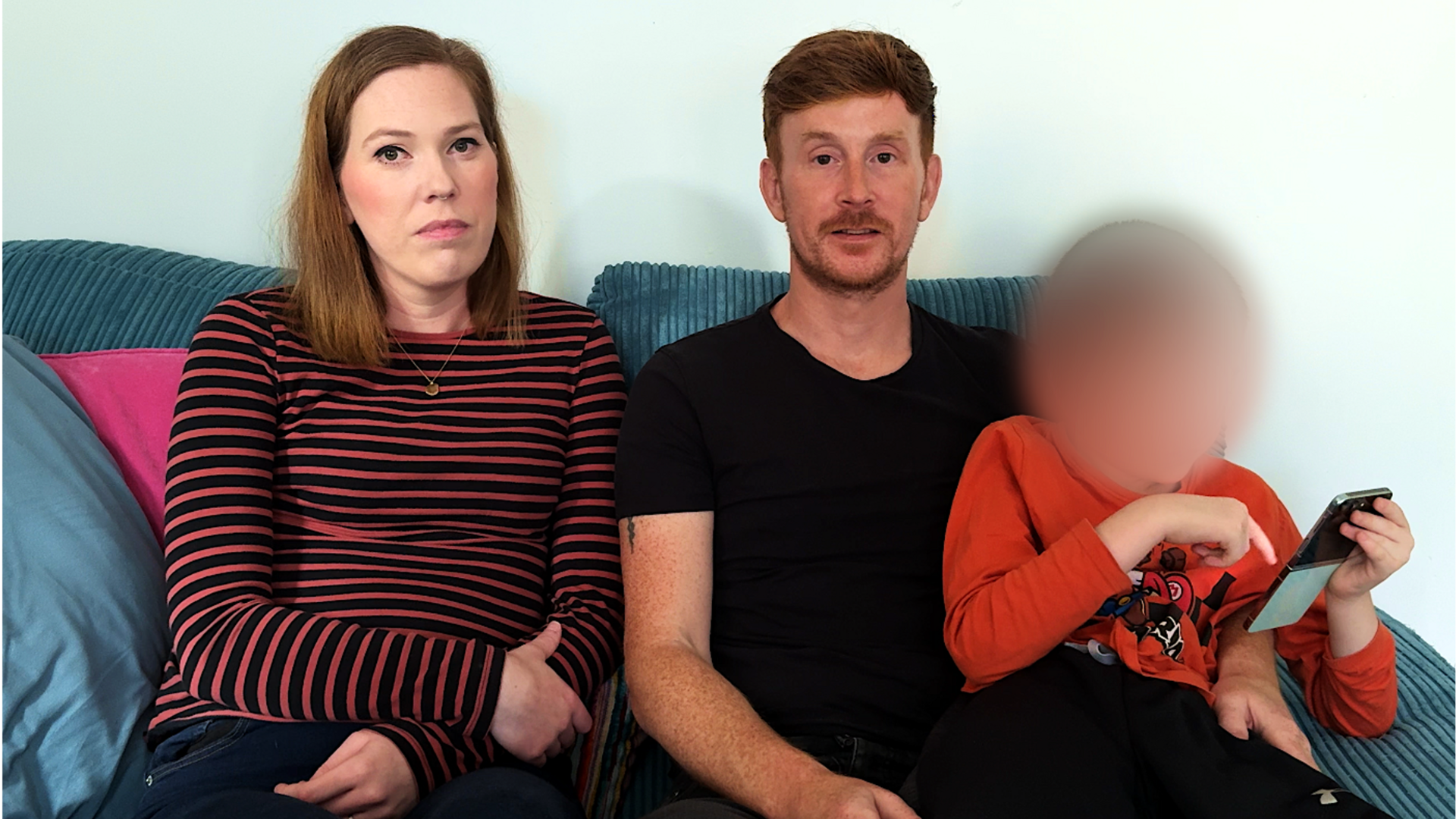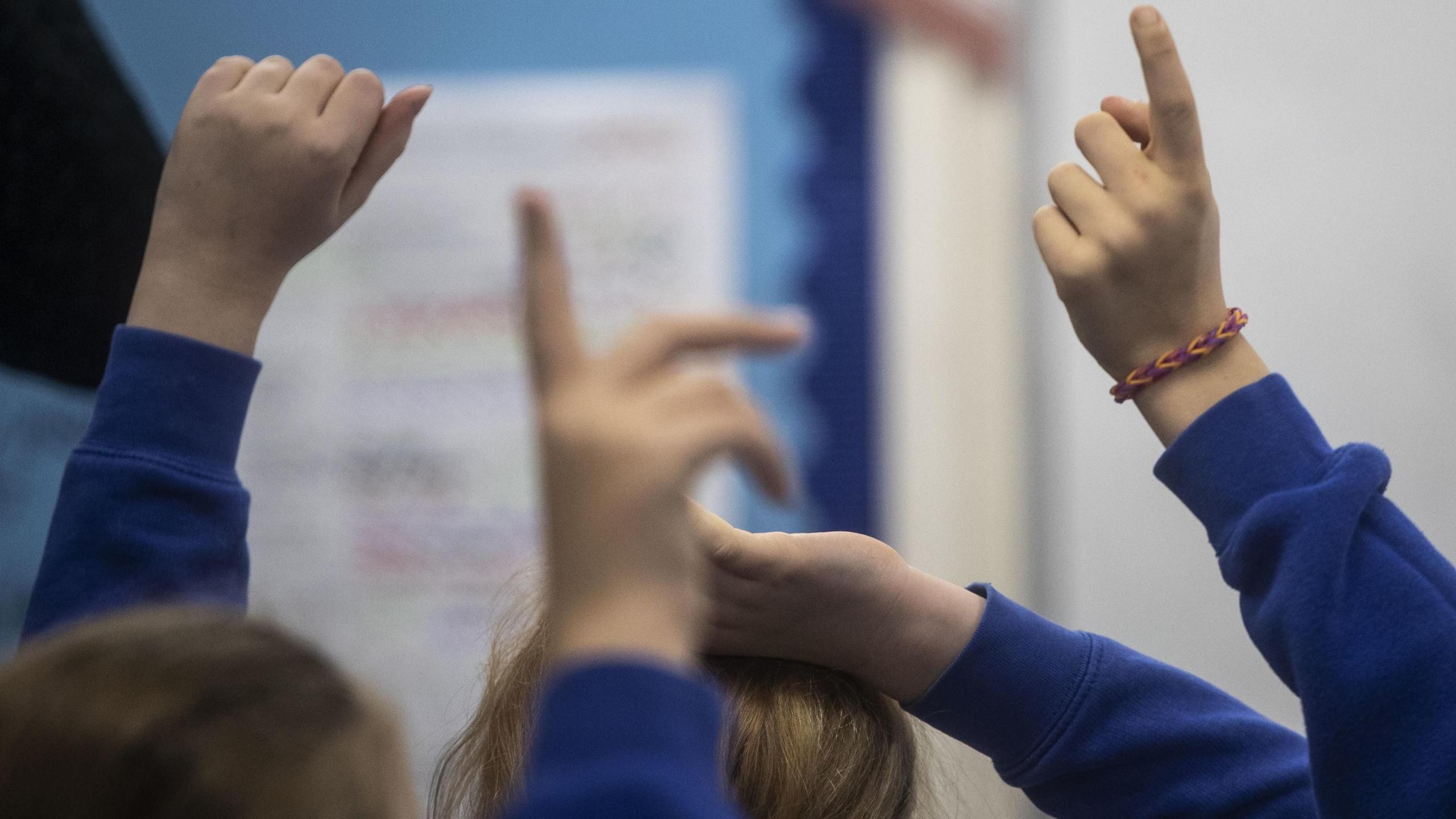'It is not safe to send my child to school'

Some parents have removed children from school
- Published
A group of families from West Sussex said their children with special educational needs and disabilities (SEND) are not safe at school.
They said a lack of appropriate support has led to dangerous situations, forcing some parents to withdraw their children.
Charlotte Gover said her autistic daughter Emily, 10, was hurting herself in the playground due to insufficient supervision, adding: "I'm being left with no choice but to keep my child at home for her safety."
West Sussex County Council said it had seen "a dramatic increase in the number of children needing SEND support" and must "prioritise those with the highest level of need."

Emily will not be returning to school in September
Emily attends a specialist school due to her autism, Crohn's disease and complex emotional needs.
Her Education, Health and Care Plan (EHCP) entitles her to specific support, including occupational therapy, small class sizes and sensory regulation.
Ms Gover said these provisions are rarely in place, and the stress of the unsuitable environment is triggering painful Crohn's flare-ups.
"Until something can be put in place to make it safe, I have no choice but to keep her at home," she said.

Ellis has not attended school for 9 months
Ellis, 8, has autism and ADHD and was enrolled in a mainstream school.
He has not attended since November 2024, after his parents withdrew him due to what they described as a "dangerous environment."
"We were seeing a rise in incidents. Either him hurting himself or hurting other children," said his mother, Rachel Hardy.
Ellis' EHCP entitles him to one-on-one support, but Ms Hardy said he stopped receiving this.
She said she has repeatedly contacted the council for help and to find an alternative placement, to no avail.
A West Sussex County Council spokesperson said the number of children with EHCPs had risen from 3,400 in 2015 to more than 10,000 in 2025.
"Our dedicated staff are working hard to prioritise those with the highest level of need and, despite the continued growth in demand, we are making improvements to the speed that EHCP applications are processed and completed.
"However, changes to the SEND system at a national level are urgently required if we are to see a sustainable future for support services.
"We want to see a system that works with families and ensures all children receive the support they need to achieve their full potential, no matter where they live or what their level of need is."
The spokesperson said that assessments for EHCPs and placements are "undertaken to meet the specific needs of individual children".
They added: "We continue to work in partnership with parents, carers and schools to make sure those needs are met with the resources available to us. Because this is a priority the council continues to invest heavily in our SEND services to deliver the best outcomes possible for children and young people."
Follow BBC Sussex on Facebook, external, on X, external, and on Instagram, external. Send your story ideas to southeasttoday@bbc.co.uk, external or WhatsApp us on 08081 002250.
Related topics
- Published16 April 2024


